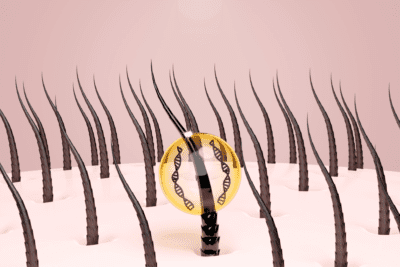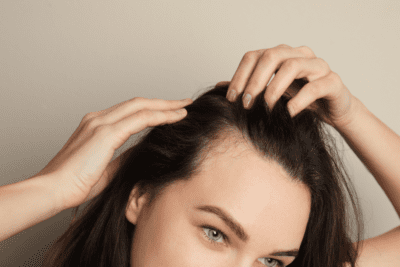One can suffer from hair loss because of the deficiency of some particular vitamins such as vitamins D, B7 (biotin), and B12. The health of our hair depends on these vitamins to a large extent since they influence the development, strength, as well as maintenance of the hair follicles. It is possible to address the deficiencies of these vitamins utilizing natural remedies like supplementation and modifications in diet. In this blog, we have explored the problem of which vitamin deficiency causes hair loss and we have also discussed some natural remedies.
Which Vitamin Deficiency Causes Hair Loss
Vitamin D
The deficiency of vitamin D can result in dry and brittle hair. Moreover, the hair can suffer from premature graying, thinning, and excessive shedding. Treatment usually comprises the supplementation of vitamin D as recommended by a health care provider.
May You Like This – How to Increase Hair Density?
Vitamin A
Vitamin A deficiency can result in increased shedding, the thinning of hair, dandruff, as well as prolonged regrowth. It is possible to reverse this condition with the help of supplements as well as food items rich in vitamin A like sweet potatoes, leafy greens, and so forth.

Vitamin C
It is possible to suffer from increased shedding, brittle strands, and dry and splitting hair if there is a deficiency of vitamin C. One can fix this condition with the help of food items rich in vitamin C like citrus fruits and broccoli as well as supplements.
Vitamin E
The deficiency of vitamin E can result in conditions like brittle strands and thinning of hair. Individuals suffering from autoimmune diseases usually suffer from this condition. Correction consists of food items rich in vitamin E like spinach and almonds along with supplements.
Folic Acid
Deficiency of Vitamin B9 or folic acid can lead to slow regrowth of hair as well as increased hair loss. It is feasible to correct this condition with the help of supplements and food items such as citrus fruits, beans, and leafy greens.
Vitamin B6
This particular vitamin deficiency can lead to the thinning of hair as well as hair loss. It is possible to correct this condition with the help of food items packed with vitamin B6 such as potatoes, poultry, and nuts as well as supplements.
Natural remedies
Even though one can suffer from hair loss because of the deficiencies of certain vitamins, natural remedies would help to restore these vitamins in the best possible way resulting in the development of healthy hair. Here, we have mentioned some surefire natural remedies that will be useful to you.

Deficiency of vitamin D – It will be a good idea to consume food items packed with vitamin D like fatty fish, fortified dairy products, and egg yolks. Another way to boost the levels of this particular vitamin will be regular exposure to sunlight. Try to expose yourself to sunlight for approximately 30 minutes several times every week. Otherwise, you may also take supplements if the natural sources are not adequate. However, make sure to consult with a physician before taking supplements.
Deficiency of vitamin A – Incorporate food sources packed with vitamin A into your daily diet like sweet potatoes, spinach, and carrots. Another source of this particular vitamin is cod liver oil which you can take in the form of a supplement. Nevertheless, take the advice of a physician before doing this, particularly for pregnant ladies. Stick to a balanced diet as well which will help you to avoid the deficiency of vitamin A.
Deficiency of vitamin C – It is recommended that you consume citrus fruits such as oranges, grapefruit, and lemons in case you are suffering from a deficiency of vitamin C. Other sources consist of broccoli, strawberries, and so forth. You can also correct the deficiency of this vitamin by taking supplements. However, you should take the help of a doctor before doing this. Otherwise, it will be a good idea to use hair products comprising vitamin C as well.
Deficiency of vitamin E – Make sure to enhance your consumption of food items rich in vitamin E such as almonds, spinach, sunflower seeds, avocado, etc. You may also apply natural oil to your scalp and hair which will provide hydration and nourishment. You can also take supplements rich in vitamin E to fix this condition effectively.

Conclusion
It is of prime importance to address the deficiency of certain vitamins that can result in the loss of hair. This can be done through natural remedies which have been discussed in this article above. In case the question arises in our mind, “Which Vitamin Deficiency Causes Hair Loss” then this article should be suitable for you. Make sure to maintain a proper diet and take some supplements as recommended by your physician. Try to be consistent when it comes to monitoring and adjusting the intake of nutrients to get the best results.

